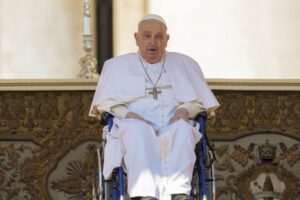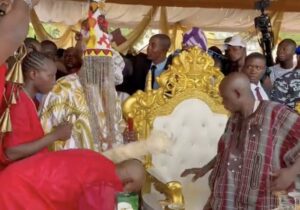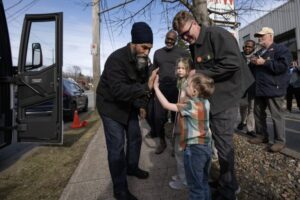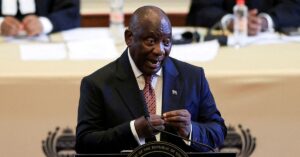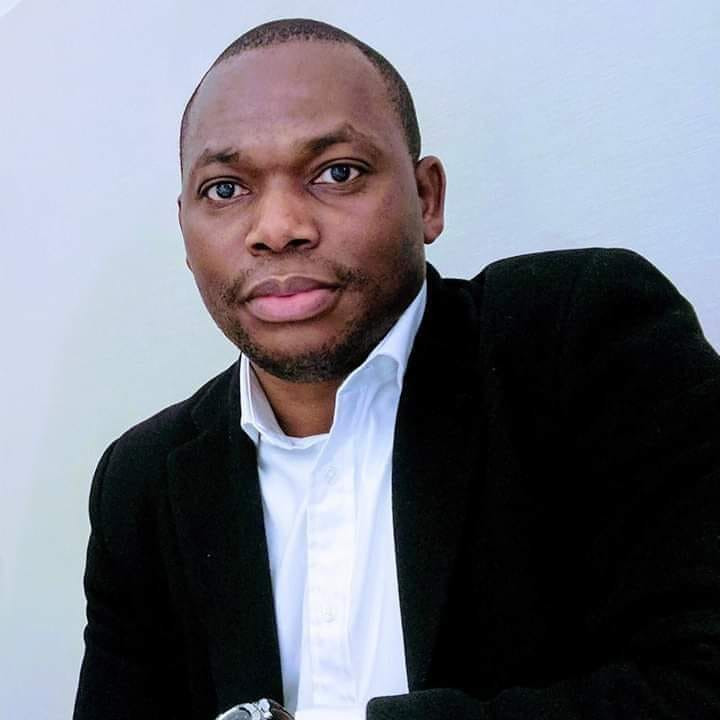
Biography:
Adeyinka Grandson’s real name is Adeyinka Shoyemi. He is a Yoruba citizen and a prince of Oka-Akoko. He currently lives in England and the President of the Young Yoruba for Freedom (YYF), who is the father of the modern Yoruba nationalism. He is described as a Yoruba nationalist in the media. Adeyinka Grandson is known for stirring up the imagination of the Yoruba youth and awaken their popular enthusiasm, develop their
critical thinking, their ability to observe, understand and analyse problems considerably and appeal to their consciousness to support a return to the regional system of government or outright dissolution of Nigeria in favour of the Oduduwa Republic. He is known for exposing the subjugation of the Yoruba nation in Nigeria by the Ibo, the immigrants Fulani and the English establishment and has threatened defensive force against them in Yorubaland. For most of his life, he pursued an academic career with political interest. He established the Economic Initiative to influence regional urban policy to bring about effective change for local communities, by acting as a bridge between policy-making and the community sector. In all his work, he brings together people from a wide range of backgrounds to develop ideas that
will shape debate in Yorubaland and beyond, and engage a broad and diverse audience
worldwide.
Books:
In his book, “Why Nigeria’s poor?”, published in 2002, he writes to the Yoruba youth: “As the trustees of posterity of this nation, we may not be responsible for the situation we find ourselves in, but we are responsible to pull ourselves out of the situation. The irrefutable fact is that if we do not think about the future we shall never have one. This is the time for sober reflection”.
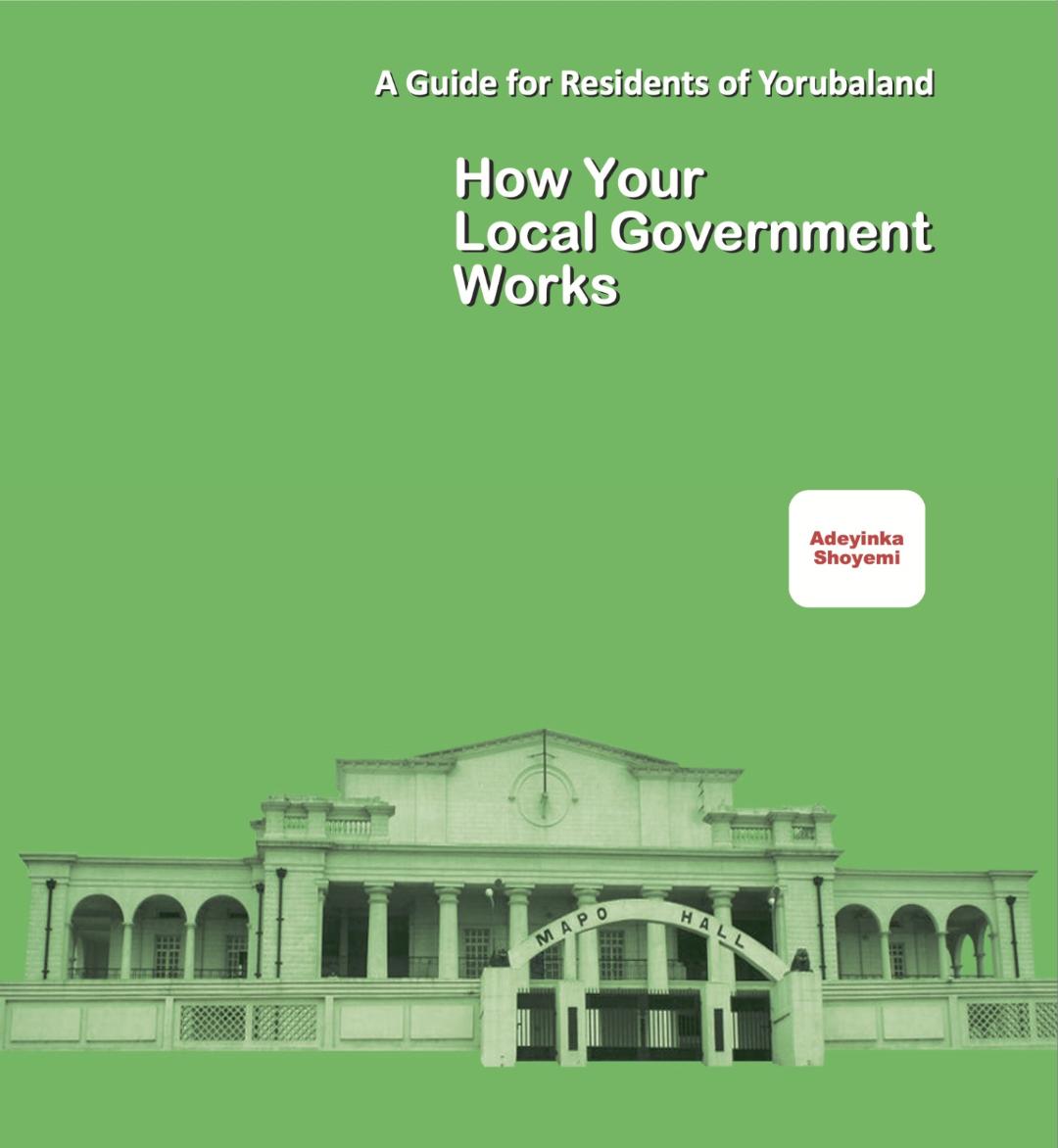
In his guide for residents of Yorubaland, titled, “How Your Local Government Works,” published in 2012, he writes:
How Your Local Government Works is a guide for citizens and residents of Yorubaland who are currently involved in or interested in getting involved in, local community activity.It is designed to inform policy-making and to support community groups and individuals to influence decision-
making in their community. It’s very instructive and relevant to how a better and more prosperous local government or local council development area could be well articulated with community empowerment and engagement, to bring about effective change for local communities.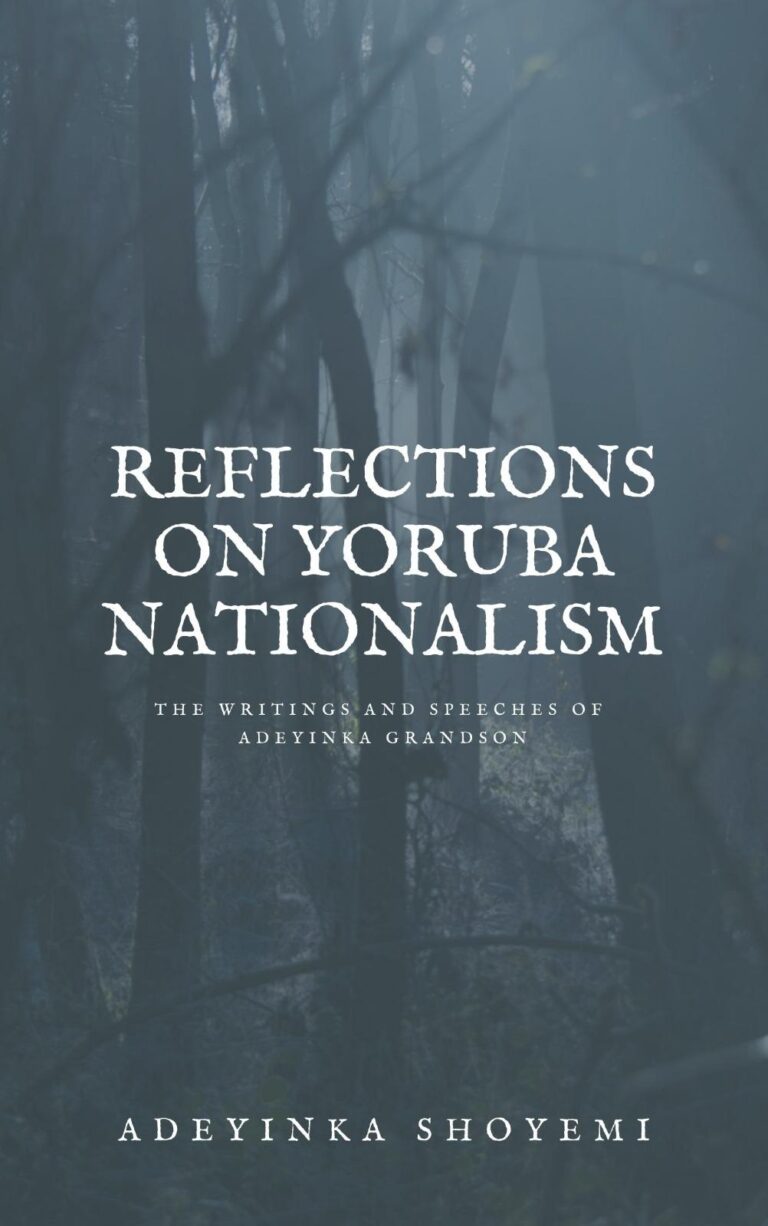 In another book he published in 2013, “Reviving Federalism”, he writes: In Nigeria, there are many
In another book he published in 2013, “Reviving Federalism”, he writes: In Nigeria, there are many
challenges that cannot be met by the central government acting alone — and to address those challenges effectively, we need to harness the energy and innovation of ethnic/linguistic regional government that gave us the best of time from 1952 to 1966 when we had in place Federalism based on regional government
before it was suspended by the military.
To help achieve this goal, reviving federalism sets out concrete proposals for areas where central government can devolve more power to citizens — giving regional, state and local communities the power to drive real improvements in everything from the way their neighbourhoods are policed to the way that community assets are used. He believes it will help to build the vibrant local democracies on which our society and our public services depend.

In a masterpiece he published in 2018, “The Commonwealth of the Yoruba Kingdom” he explains that the rates of resources taking away from Yorubaland to develop non- Yoruba region in Nigeria remains shockingly high, and that the Yoruba people continue to face barriers in being unable to develop at their own pace. Therefore, the first and greatest reason for demanding the Commonwealth of the Yoruba
Kingdom otherwise known as the Oduduwa Republic, is that the people of Yorubaland want and deserve democracy. Their will is powerful, clear and true every time opinion is sounded.
It has been expressed calmly and consistently over a period of decades, and has strengthened rather than diminished with the passing of time. In a responsive and effective democracy, this would-be reason enough for change. But the present unitary constitution of Nigeria denies Yorubaland responsive and effective democracy.
That is the second reason for demanding for the Oduduwa Republic.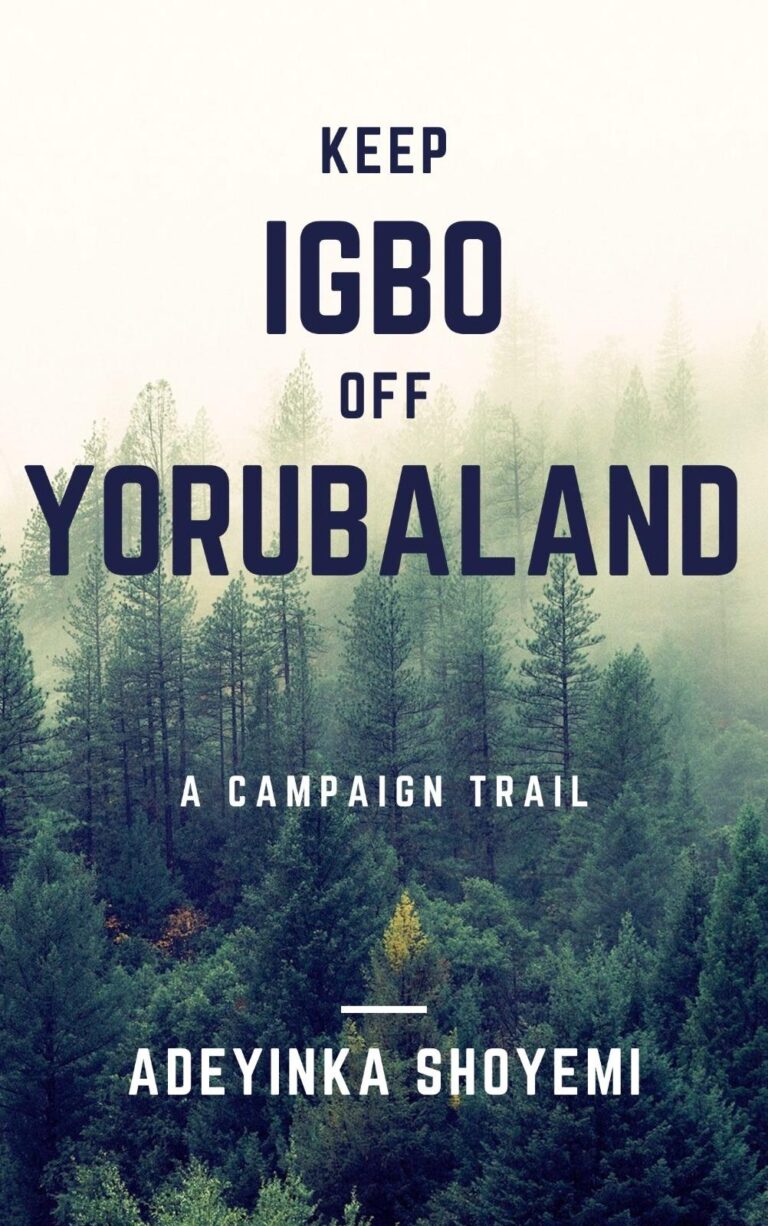 In a campaign trail titled, “Keep Igbo Off Yorubaland,” published in 2020, he says that Yorubaland loses its
In a campaign trail titled, “Keep Igbo Off Yorubaland,” published in 2020, he says that Yorubaland loses its
culture and identity by allowing unregulated migration of people from Igboland to Yorubaland. The wave of 5 million people yearly comes from Igboland into Yorubaland. That definitely changes Yorubaland for the worse.
Allowing the mass migration of the Igbo to Yorubaland in the name of One-Nigeria is shameful. It changes the fabric of Yoruba society, and unless we act very quickly to stop that,
Yorubaland will never be great again because to allow millions of people into Yorubaland without regulation is very, very sad. We are losing our culture and identity. The unregulated movement of the Igbo in Yorubaland began over four decades ago when Aguiyi Ironsi suspended the regional government in 1966 and imposed the unitary system on the country.
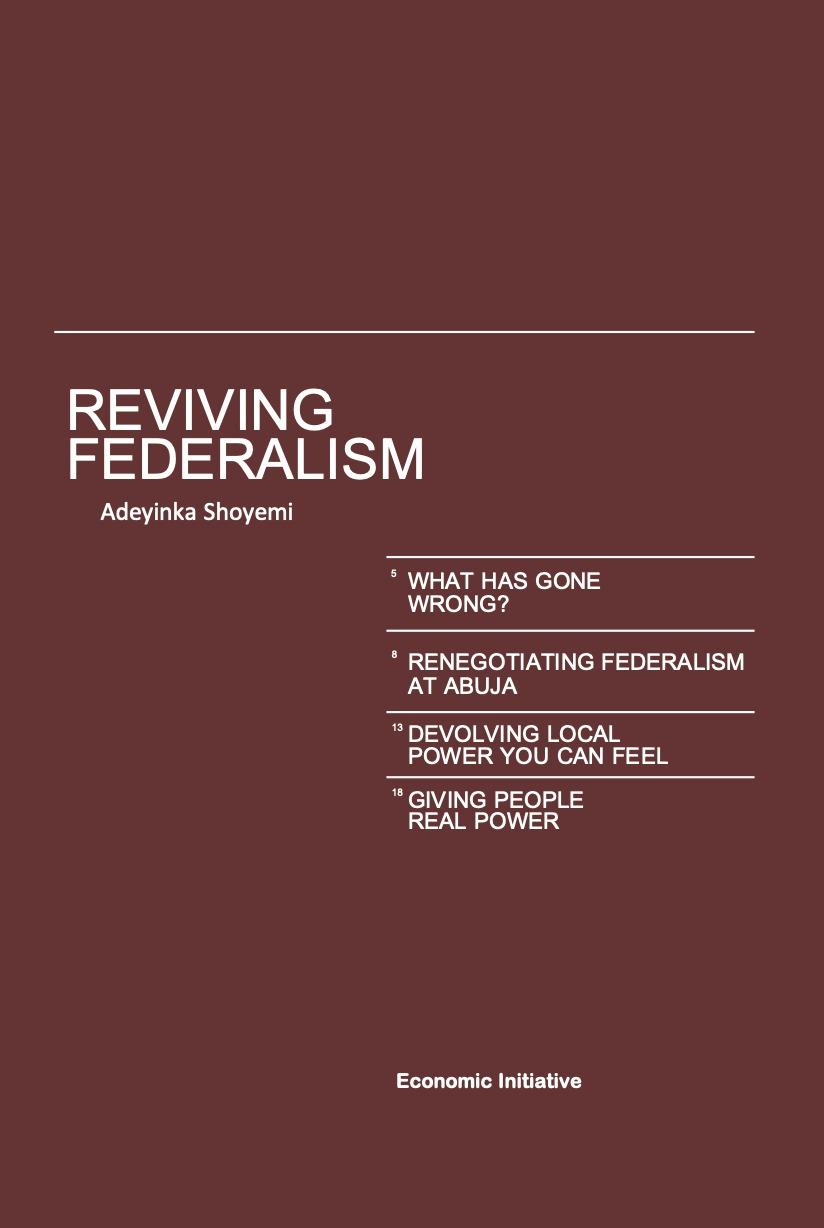 The Yoruba leadership that preceded us did a terrible job in terms of the control of the migration of people to Yorubaland. The Igbo in Yorubaland have not been hospitable. They are sticking to a fraudulent unitary system that takes money from Yorubaland and shared it with the Igbo and the Hausa and Fulani in a bid to keep the Yoruba nation and her people poor and miserable. We are cracking down on the fraudulent unitary system
The Yoruba leadership that preceded us did a terrible job in terms of the control of the migration of people to Yorubaland. The Igbo in Yorubaland have not been hospitable. They are sticking to a fraudulent unitary system that takes money from Yorubaland and shared it with the Igbo and the Hausa and Fulani in a bid to keep the Yoruba nation and her people poor and miserable. We are cracking down on the fraudulent unitary system
because the parasitic Igbo and the Hausa and Fulani have failed to treat the Yoruba nation fairly in terms of income distribution.
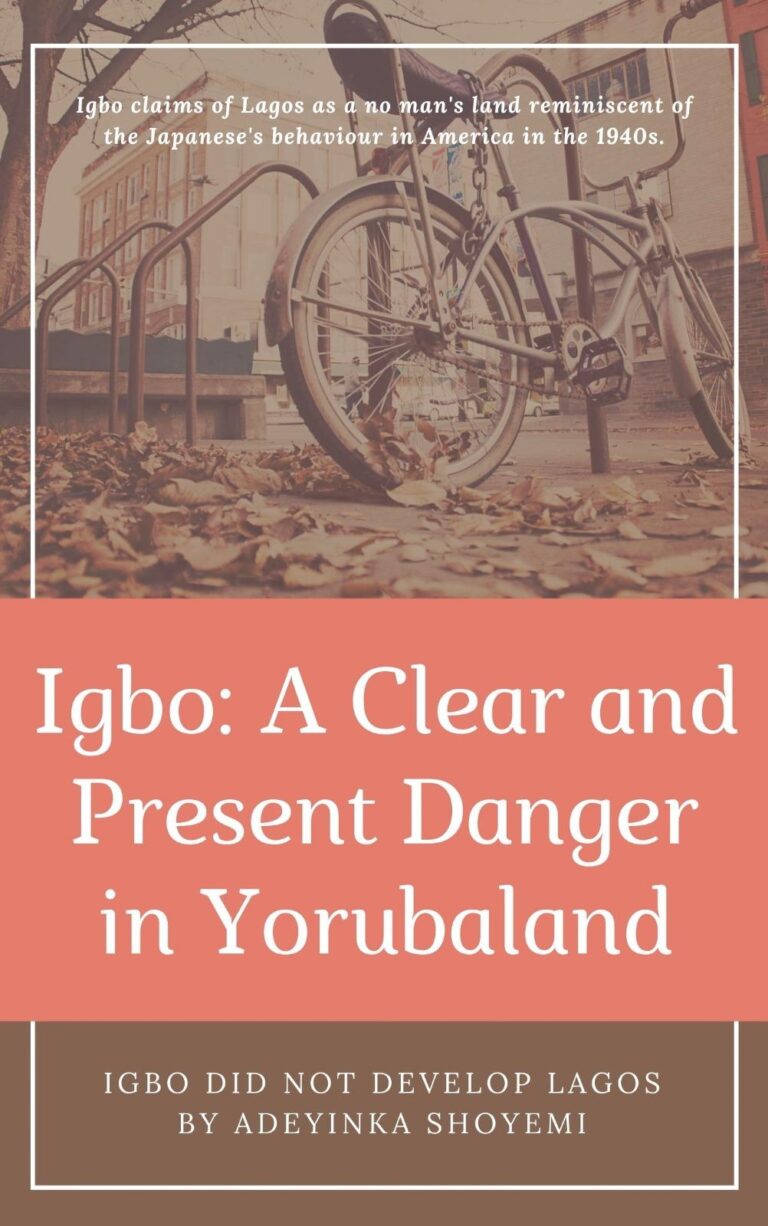 In the book titled, “Igbo: A Clear and Present Danger in Yorubaland," published in July 2021, he writes: It is shocking that the Igbo have always refused to support the political interests of the Yoruba people since 1959. Yet half of them live, work and study in Yorubaland. From Surulere to Badagry, every major suburb is dominated by the Igbo.
In the book titled, “Igbo: A Clear and Present Danger in Yorubaland," published in July 2021, he writes: It is shocking that the Igbo have always refused to support the political interests of the Yoruba people since 1959. Yet half of them live, work and study in Yorubaland. From Surulere to Badagry, every major suburb is dominated by the Igbo.
From Coker-Aguda axis Agegunle on the left and Ajao- Isolo-Okota on the right, until Amuwo, Festac, satellite city,Ejigbo, Ikotun , etc., are Igbo dominated. Cross to trade fair, and consider all the areas left and right between the Trade Fair and Alaba International, are dominated by the Igbo. The local government of Ojo, Ajangbadi, Iba Estate, Okokomaiko, Afromedia, Agbara Estate and all residential neighbourhoods to Badagry are dominated by the Igbo.
These places are at least 1/3 of the state of Lagos, and the population is at least 75% Igbo. Then back to Ikeja,
especially Omole Estate, Phase 1 and 2, Magodo, Oworonsoki, Lekki, Ajah , etc., these areas have at least
50% to 60% Igbo residents. Yet, the Igbo as a collective continued to support the political interests of the Fulani to prevail over the Yoruba and all other nationalities in Nigeria as President of the country.
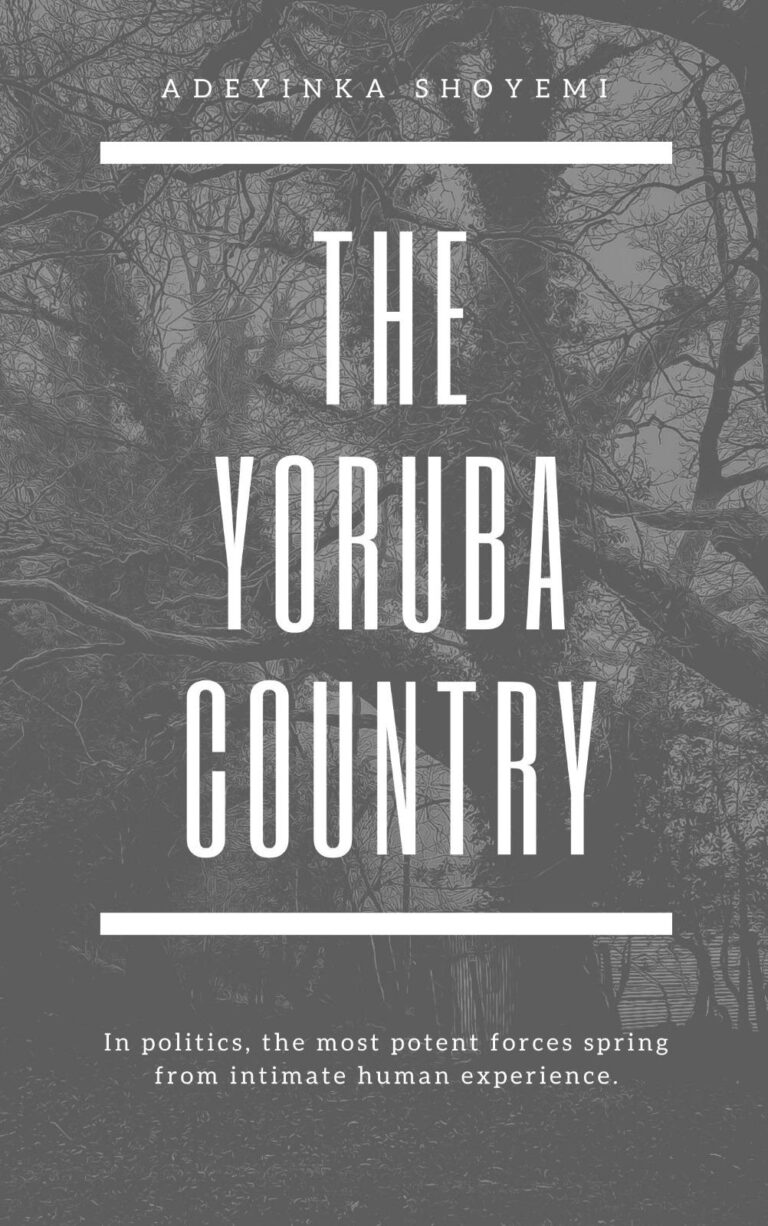 In another book, “The Yoruba Country," published in July 2021, he states that the rise of Yoruba pride is tangible in everyday conversation, on the doorstep, and in the growing social media. Musicians and writers are exploring Yoruba issue more explicitly than has been the case for years. Politicians who have long expressed us as ‘Nigerians first’ no longer feel quite so eccentric. More happily, others have made Yoruba national pride a source of joy. What is interesting is not that Yoruba identity has risen but why? We all carry identities and loyalties to communities, ethnicities, teams, nations, or communities around the world. But it is only at certain times that we find one identity a powerful way of describing ourselves and
In another book, “The Yoruba Country," published in July 2021, he states that the rise of Yoruba pride is tangible in everyday conversation, on the doorstep, and in the growing social media. Musicians and writers are exploring Yoruba issue more explicitly than has been the case for years. Politicians who have long expressed us as ‘Nigerians first’ no longer feel quite so eccentric. More happily, others have made Yoruba national pride a source of joy. What is interesting is not that Yoruba identity has risen but why? We all carry identities and loyalties to communities, ethnicities, teams, nations, or communities around the world. But it is only at certain times that we find one identity a powerful way of describing ourselves and
our collective interests. It is at these times people turn to old identities and refresh them so they serve us in our modern world. National identities usually strengthen when people feel hard done-by. Today’s Yoruba identity reflects a growing sense that Yoruba people lack a real voice on the things that matter to them, as demand for Yoruba Nation by Yoruba people shows clearly. Worse, they feel they are losing out and being treated less fairly in a multiethnic country.
This book, “Reflections on Yoruba Nationalism," published in September 2021, is about the writings and speeches of Adeyinka Grandson which revolves around the volatile history of the Ibo, Hausa/Fulani and Yoruba generated by politics and not race or ethnicity. The Yoruba nationalism has never been about ethnic cleansing or racial divide but about creating a fair, just and proportionate system of political rule which benefits all those who resides within the border of Nigeria, regardless of ethnicity. Adeyinka Grandson posted videos and written articles on various social media platforms. In posting such material, he does not intend to stir up racial hatred.
Furthermore, he does not accept that racial hatred was likely to be stirred up as a consequence of his posts. He also does not accept that the history of disharmony among the Yoruba, Hausa/Fulani and Ibo people is rooted in racial hatred or ethnicity. The divided and sometimes violent history was a direct consequences of the English's colonialism in Nigeria, and the subsequent pursuit of power and wealth amongst the
Yoruba, Fulani and Ibo people. The Yoruba people have been the victims rather than the beneficiaries of Nigeria's political dysfunction for many years.
Date of Birth:
Adeyinka Grandson was born on the 12th of April. He is in his early 40’s.
Nationality, Tribe and Sate of Origin:
Adeyinka Grandson is a Yoruba national and from both the Yoruba-Akoko and Yoruba- Remo tribes. He hails from both Ogun and Ondo States in the Yoruba region of Nigeria.
Family, Parents and Siblings:
Adeyinka Grandson had two grandfathers. The first was an Akoko-Yoruba, while the other was a Remo-Yoruba. He likewise had two grandmothers. The foremost was an Ondo- Yoruba and the other an Ijebu-Yoruba. These four grandparents, together produced Adeyinka Grandson’s parents. He, consequently, has Yoruba bloodlines from Akoko, Remo, Ondo, and Ijebu respectively. Adeyinka Grandson had several siblings.
Wife, Marriage and Children:
Adeyinka Grandson met his wife Opeyemi Fafemi at the Lead City University, Ibadan in 2003 and got married to her in 2007. They both moved to London, England, shortly after their marriage. In August 2012, Adeyinka Grandson filed for a divorce, and separated from Opeyemi. The couple lived apart from August 2012, but remained married until August 2017 when Adeyinka Grandson finally dissolved the marriage and obtained a decree absolute. The marriage lasted for 10 years and produced two children.
Education: Adeyinka Grandson, pursued an academic career with political interest and as he himself reported, he is more
Adeyinka Grandson, pursued an academic career with political interest and as he himself reported, he is more
noted in the university for talking about what actually exists in nature than for an interest in abstract reason for its own sake. He obtained an MSc in Economics at the Lead City University, Ibadan; BSc. (Hons) in Economics at the Ambrose Alli University, Ekpoma; attended courses in Philosophy and Economics at the School of Philosophy and Economic Science, London; and obtained a certificate in Justice from Harvard University.
How He Formed The YYF: Over the past 20 years, Adeyinka Grandson has written extensive literature detailing the history of and relationship between the Ibo, Hausa/Fulani and Yoruba communities of Nigeria. These texts have been both academic and political. In 1999 and whilst still a university student, he and others formed the Cheated Generation Group. The movement objective was to promote a return to a parliamentary system of government in Nigeria or alternatively to create the Oduduwa Republic.
Over the past 20 years, Adeyinka Grandson has written extensive literature detailing the history of and relationship between the Ibo, Hausa/Fulani and Yoruba communities of Nigeria. These texts have been both academic and political. In 1999 and whilst still a university student, he and others formed the Cheated Generation Group. The movement objective was to promote a return to a parliamentary system of government in Nigeria or alternatively to create the Oduduwa Republic.
It intended to inform policymaking and support community groups and individuals to influence decision making in local communities. In 2012, the movement renamed themselves the Young Yoruba for Freedom (YYF), as they have evolved into a conservative movement providing education and an understanding of liberty, individual freedom, strong national defense, free enterprise, and self preservation to ensure that increasing numbers of young Yoruba understand and are inspired by these ideas. The current Presidential system in Nigeria takes resources and revenue from Yorubaland, disproportionately uses it to fund the economic growth and development of the Hausa/Fulani and Ißo regions. The ultimate objective of the YYF was to campaign for the liberation of Yorubaland and form an independent Oduduwa Republic in the absence of a return to the regional system of government in Nigeria, and to ensure that the Yoruba nation has the power to control its own land borders, coastline, airspace,
taxation, immigration, prison, public service, courts, police, military, wealth as well as human and natural resources. In 2017, Adeyinka Grandson was appointed the President of the Young Yoruba for Freedom. In the recent years, the YYF has attempted to form relationships with international allies, including the United States, Israel, Brazil, the European Union and others. In 2018, Adeyinka Grandson wrote to President Donald
Trump, the CIA, and the US Senate, seeking assistance for the restoration of the regional system of government which all the ethnic groups in Nigeria agreed at independence as the Yoruba basic minimum for staying within Nigeria. The Young Yoruba for Freedom (YYF) encourages young Yoruba to participate in the political affairs of Nigeria by supporting Asiwaju Bola Ahmed Tinubu, a Yoruba citizen, for the 2023 presidential
election.
Adeyinka Grandson’s Arrest: Adeyinka Grandson was arrested on 6 of August 2019 over a false allegation of terrorism by his former wife, Ms Opeyemi Fafemi. However, on 20 May 2020, the Scotland Yard Counterterrorism Command after its investigation dismissed the allegation of terrorism, but charged Adeyinka Grandson with stirring up Racial Hatred, contrary to section 21(1) of the Public Order Act 1986 of the United Kingdom. Adeyinka Grandson pleaded not guilty to the indictment and says that between 2007 and 2019, he has written and published
Adeyinka Grandson was arrested on 6 of August 2019 over a false allegation of terrorism by his former wife, Ms Opeyemi Fafemi. However, on 20 May 2020, the Scotland Yard Counterterrorism Command after its investigation dismissed the allegation of terrorism, but charged Adeyinka Grandson with stirring up Racial Hatred, contrary to section 21(1) of the Public Order Act 1986 of the United Kingdom. Adeyinka Grandson pleaded not guilty to the indictment and says that between 2007 and 2019, he has written and published
countless articles and posted countless videos, the selection of the 4 videos by the police out of the 520 videos he has posted misrepresents and takes out of context the extent of his political work. The videos particularised in the indictment by the police, give one perspective of Adeyinka Grandson’s political opinion, namely that without a return to the regional system of government as negotiated before independence, there is likely to be an eruption of violence and the likelihood of fatalities. Adeyinka Grandson asserts that his posts were advocating the use of defensive force and the creation of a financially hostile environment to the minority Fulani led federal government of Nigeria and were not about ethnic cleansing or racial hatred. The trial is listed for 15 November 2021.
Adeyinka Grandson’s Ultimatum to the Ißo:
In a viral video, Adeyinka Grandson as the President of the Young Yoruba for Freedom (YYF) told the people of Ibo extraction residing in Yorubaland to leave the region within 48- hours over their deliberate destruction of private properties and businesses belonging to the Yoruba people, particularly that of Bola Tinubu during the #EndSARS protest.
Adeyinka Grandson in the video said that from Monday, October 26, 2020, all vehicles will be stopped and checked and any Ibo person found still living in Yorubaland will be seriously dealt with. Prior to the video, Adeyinka Grandson had asserted that the Ibo nation is the number one enemy of the Yoruba nation, hence, Yoruba women must stop having sexual and marital relationships with Ibo men. He stated that the Ibo people mass migrate to Yorubaland; engaged in criminal activities; and have always voted against the Yoruba presidential candidate. He explained that in 1959, the Ibo rejected Obafemi Awolowo, a Yoruba, and labelled him a Tribalist. But formed a coalition government with Tafawa Balewa, a Fulani, whose leader, Ahmadu Bello, openly said in an interview that he thinks Hausa/Fulani first on all employment positions in the North. In 1979 and 1983, the Ibo nation again rejected Obafemi Awolowo, a Yoruba, and called him a Tribalist. But voted
for Shehu Shagari, a Fulani, who was pro-Fulani first and foremost. In 1993, the Ibo nation, due to their deep seated hatred for the Yoruba nation, called Moshood Abiola, a Yoruba, Muslim fundamentalist after they had lied about him destroying the Holy Bible, which was a propaganda. They then voted against Abiola, but voted for Bashir Tofa, a Fulani. Abiola eventually won the election to the disgrace of the Ibo nation, but an Ibo man, Arthur Nzeribe, went to court and got a black market judgment to have Abiola’s victory annulled.
This contributed to the annulment of the election of 1993, the imprisonment of Abiola, the assassination of his wife, Kudirat Abiola and the eventual murdered of Abiola by the Fulani. In 1999, the Ißo nation rejected Olu Falae, a Yoruba and alleged that because he was the Secretary to the military government of Ibrahim Babangida, then he was not fit to be the president of Nigeria, according to the Ißo nation. However, the Ißo
voted for Olusegun Obasanjo, a half-Ißo and a former military Head of State of Nigeria. Since Tinubu was elected the Lagos State Governor in 1999, the Ibo people have tried several time to kill him. Yet, due to his noble role of ensuring that Jonathan became the substantive president of Nigeria in 2010, shortly after the death of Yar'Adua, and subsequently as the elected president of Nigeria in 2011 as well as the electoral victory of Buhari in 2015 and again in 2019, the Ibo nation is out against Tinubu and have alleged
that he is corrupt. Yet, Tinubu has never been convicted of corruption since he left office in 2007. Adeyinka Grandson advised the Yoruba women in sexual and marital relationships with Ibo men to think long and hard about the Ibo's hatred for the Yoruba nation and her citizenry.
Adeyinka Grandson’s Net Worth: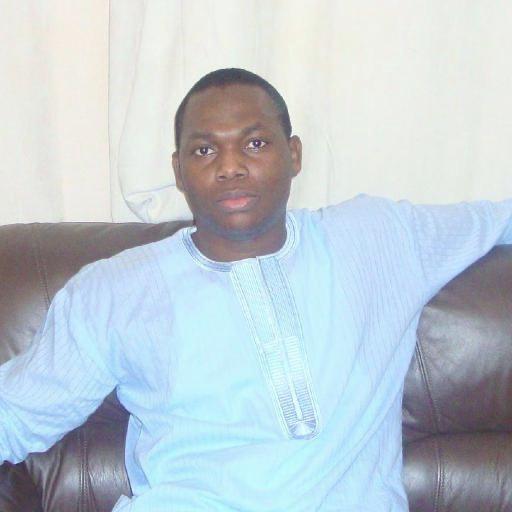
How much does Adeyinka Grandson worth? Adeyinka Grandson has not revealed his net worth.
The Biafra war was fought not to stop the Ibo people from leaving Nigeria, but to protect the people of Edo, Urhobo, Ijaw, Efik and Ibibio who are not Ibo and do not wish to be
part of Biafra, from being appropriated by the Ißo as part of Biafra. If the Ißo were given their five Ißo-speaking states plus the Aniocha in Delta State and the Ikwere in Rivers State as their Biafra, they will reject it. They desperately want Edo, Urhobo, Ijaw, Efik and Ibibio land as part of their Biafra. Anything outside this,
they want the continuation of the 36 state unitary system they foisted on the country in 1966 after they suspended the regional system of government. The Ißo people are the greatest beneficiary of the unitary system of government Nigeria practices since 1966.
They do not wish for Nigeria to break up.


